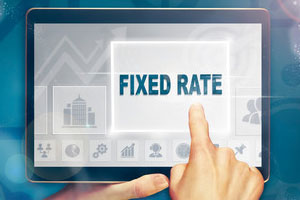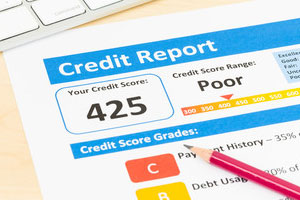Discounted Mortgages
In certain economic circumstances, you could be paying a very low interest rate.
A discount mortgage is where the interest rate is fixed at a predetermined percentage lower than the lender’s standard variable rate.
Discounted Mortgages
“A mortgage with a discount rate follows the usual variable rate offered by the lender. This type of financing has advantages and disadvantages.”
An example of a discount mortgage is a form of variable rate mortgage in which the lender provides you with a discount on its standard variable rate for a set length of time, usually a few years. Unless you refinance onto a better deal, once the time period is up for the discounted rate, you start paying the more expensive SVR.
“Discount mortgages are products that allow you to commit to a contract with a lower interest rate, which can help you save money.”
You’ll find the answers to these queries on our website and speaking with our discount mortgage advisors, we will also help with information on how to get specialised assistance.
How do discount rate mortgages work?
At the conclusion of any initial variable or fixed-rate period, you switch to the regular variable rate, which each lender sets independently. A mortgage with a discount rate follows that SVR. The interest rate on your mortgage will therefore be 3 percent if the lender’s SVR is set at 5 percent and the reduction is 2 percent.
Due to the fact that lenders determine their own SVRs, they might differ greatly. For example, two lenders giving a 2 percent discount may wind up charging very different rates. The discount’s magnitude and duration will also differ depending on the lending institution and the loan.
Advantages & Disadvantages of a discount rate mortgage
Advantages
Disadvantages
- Your monthly payments could not be the same each month since your discounted interest rate follows your lender’s SVR, which is subject to vary at any moment and in any amount. A fixed-rate mortgage can be a better option if you have a limited budget and require your payments to remain constant.
- Your discounted interest rate may be constrained by a collar in a discount mortgage, restricting how much you profit from drops in the SVR.
- Large discount borrowers may be especially vulnerable when their agreement expires since they may be subject to a significant and abrupt increase in their interest rate when they are transferred to the lender’s SVR.
- Additionally, early repayment penalties are frequently included with discount rate mortgages. If you wish to pay off your mortgage early, including if you want to refinance to a new agreement, you must pay this fee. ERCs can reach hundreds of pounds because they are calculated as a percentage of the amount being repaid.
- As a result, switching to a different product will cost you a lot of money if you sign up for a discounted rate mortgage and then discover that the interest rate is rising above a level you are comfortable with.
Due to the fact that discount mortgages are less popular than fixed rates, many lenders do not provide them. Using our mortgage comparison tool, you may learn about the discounted mortgages that are offered.
A different choice would be to speak with an impartial mortgage broker. Whether it’s a discount, another variable-rate mortgage, or a fixed rate, they will be able to search the market to locate the best deal for you. Additionally, your broker probably has access to lenders who don’t provide their mortgages to borrowers directly and will be aware of which lenders are most likely to accept your application.
A different choice would be to speak with an impartial mortgage broker. Whether it’s a discount, another variable-rate mortgage, or a fixed rate, they will be able to search the market to locate the best deal for you. Additionally, your broker probably has access to lenders who don’t provide their mortgages to borrowers directly and will be aware of which lenders are most likely to accept your application.
- Discount mortgages may be quite affordable during periods of generally low-interest rates.
- However, they may have a “collar,” or a predetermined rate that they are not allowed to fall below.
Some collars are fixed at the rate you’re paying when you sign the arrangement, so any drop in your lender’s SVR won’t be advantageous to you.
Your starting interest rate will be 2 percent if, for instance, the lender’s SVR is 5 percent and they offer a mortgage with a 3 percent
- Discounted mortgage offers are often made for a brief period of time, usually between two and five years.
- The amount of the discount often decreases with the length of the discounted period.
- When this period expires, your lender will typically move you automatically onto its SVR.
- Due to the higher interest rate, your monthly repayments will therefore increase.
You’ll typically be better off refinancing to a new agreement at this stage.
It’s important to take your attitude toward risk into account when selecting whether to pick a discount mortgage.
You might choose to assume that risk to potentially save money if the initial interest rate on a discount mortgage is significantly lower than on a fixed-rate mortgage and you believe that interest rates will remain low for the foreseeable future.
However, if you require predictable future interest payments, a discount agreement won’t provide you with that certainty over the long run.
You might choose to assume that risk to potentially save money if the initial interest rate on a discount mortgage is significantly lower than on a fixed-rate mortgage and you believe that interest rates will remain low for the foreseeable future.
However, if you require predictable future interest payments, a discount agreement won’t provide you with that certainty over the long run.
What we do
Our Services
















Have a question?
Get in touch
Help & Guidance
- Mortgage Calculators
- Vehicle Refinance
- Vehicle Finance
- Vehicle Leasing
- Commercial Mortgage
- Bridging Loan
- Buy To Let
- Development Finance
- Second Charge
- First Time Buyer
- Poor Credit Mortage
- Building Insurance
- Mortgage Protection
- Life Assurance
- Business Protection
- Asset Finance
- Capital Release
- Invoice Financing
- FAQs
- Forms
Our Products & Services
- Commercial Finance
- Residential Mortgage
- Homeowner
- Specialist Finance
- Insurance
- Business Finance
- Asset Finance
- Tax Relief
- Invoice Financing
- Vehicle Finance
- Mortgage Calculators
- Vehicle HP Calculator
- Vehicle PCP Calculator
- Mortgage Forms
- Bridging Loan Form
- Buy To Let Forms
- Second Charge Forms
- Commercial Forms
Disclaimer:
Every effort has been made to ensure the accuracy at the time it was written. It is not intended to provide legal advice or suggest a guaranteed outcome as individual situations will differ and the law may have changed since publication.
Readers considering legal action should consult with an experienced lawyer to understand current laws and how they may affect a case.
These Terms apply to your use of our website. If you are not over 18 or not living in the United Kingdom you will not be able to use this website and you should not attempt to make an application, although subject to your acceptance of these Terms you should feel free to browse.
If you do not agree to be bound by the Terms set out below you should not use this website.
If you do not agree to be bound by the Terms set out below you should not use this website.
About Us
We are an established broker working in partnership with selected lenders to bring our clients the financial solution that best suits their needs. From all types of residential or commercial mortgage through to bridging and development finance and onto vehicle, asset and business finance.
Important
YOUR HOME MAY BE REPOSSESSED IF YOU DO NOT KEEP UP REPAYMENTS ON YOUR MORTGAGE
Leodis Financial is a trading style of Leodis Financial Ltd. Directly authorized and regulated by the Financial Conduct Authority. FRN750327. Office: RHS Rebecca House, Bradford. BD1 2RX Registered Company No: 09865671 | Registered in England and Wales.
2022 – © Leodis Financial – All Rights Reserved
